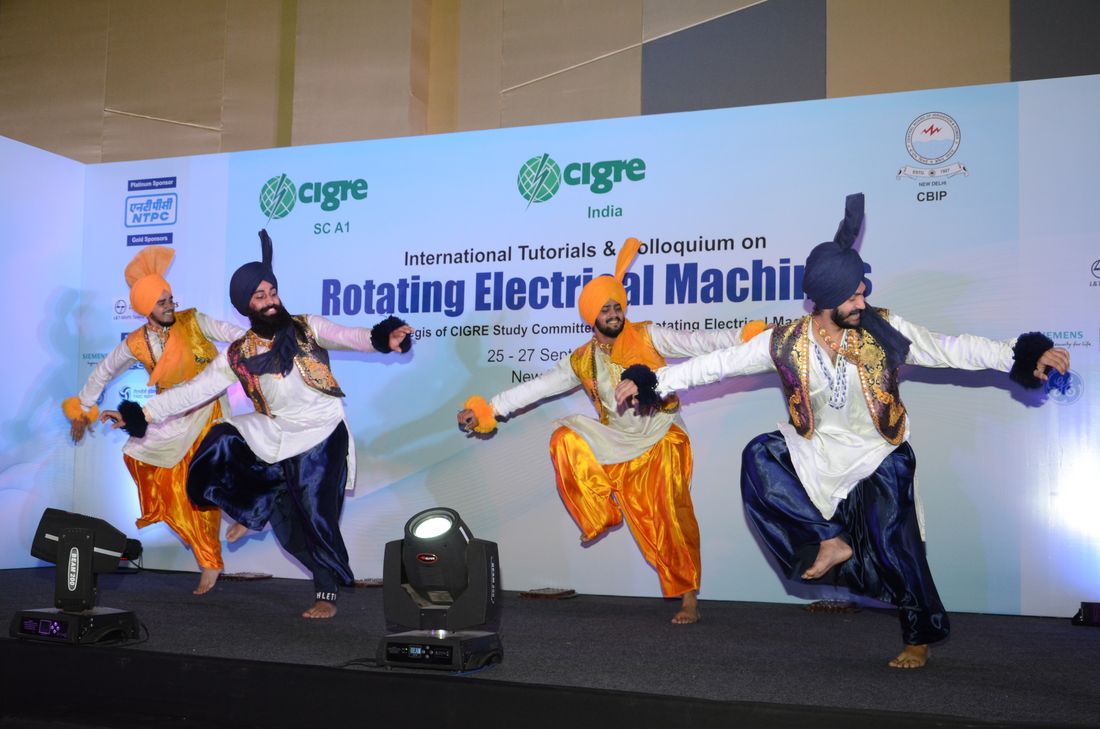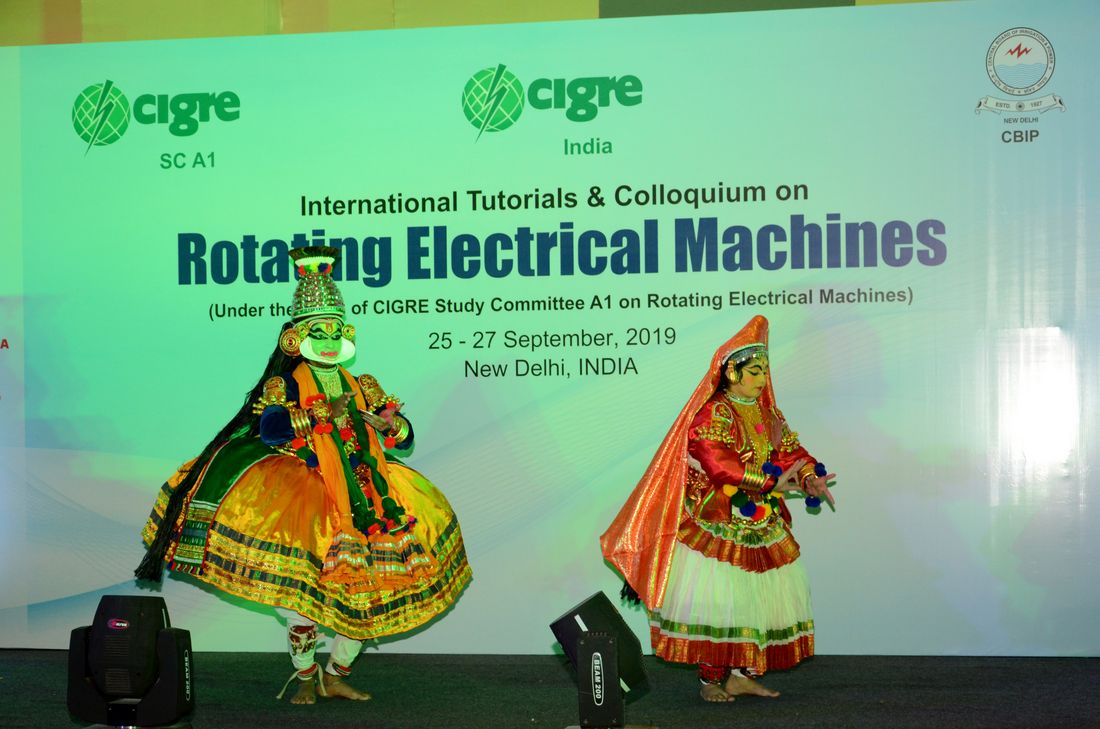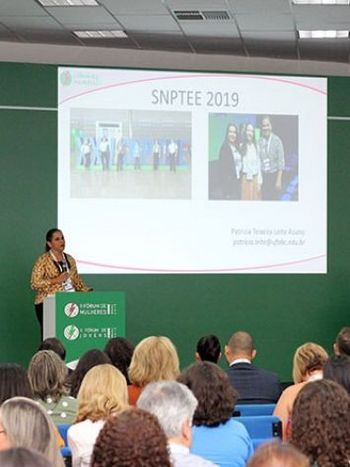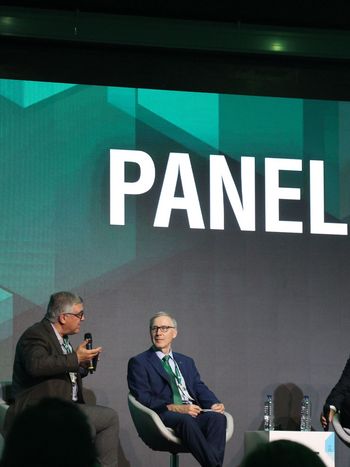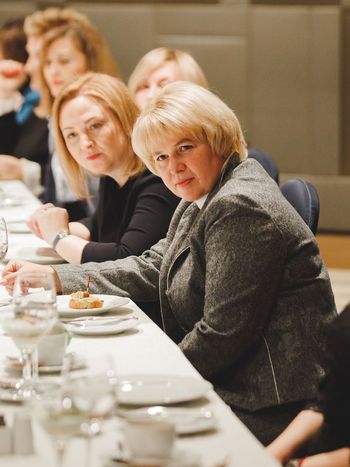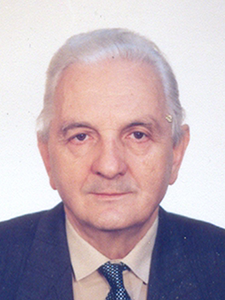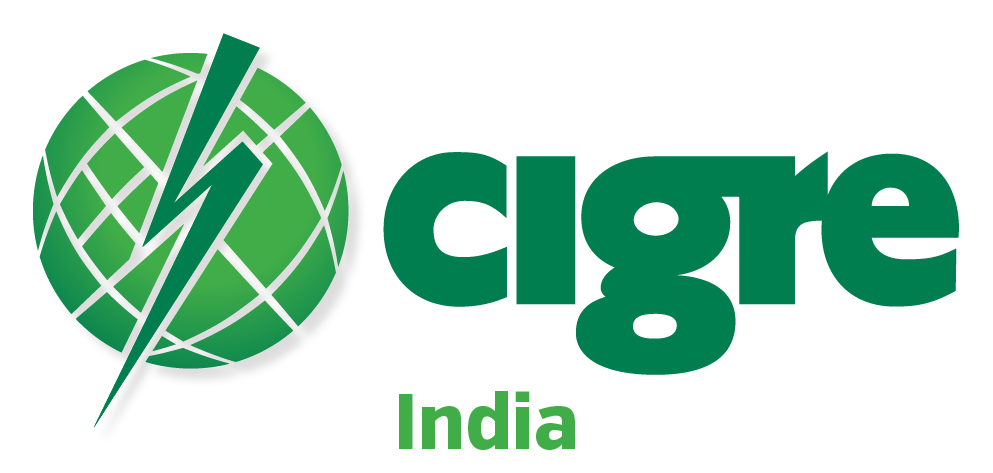CIGRE India - SC A1 Meetings, Tutorial and Colloquium 2019
SC A1 held its 2019 Study Committee meeting and Colloquium in New Delhi from 21 September 2019 to 28 September 2019 in Hotel Taj Vivanta, New Delhi.
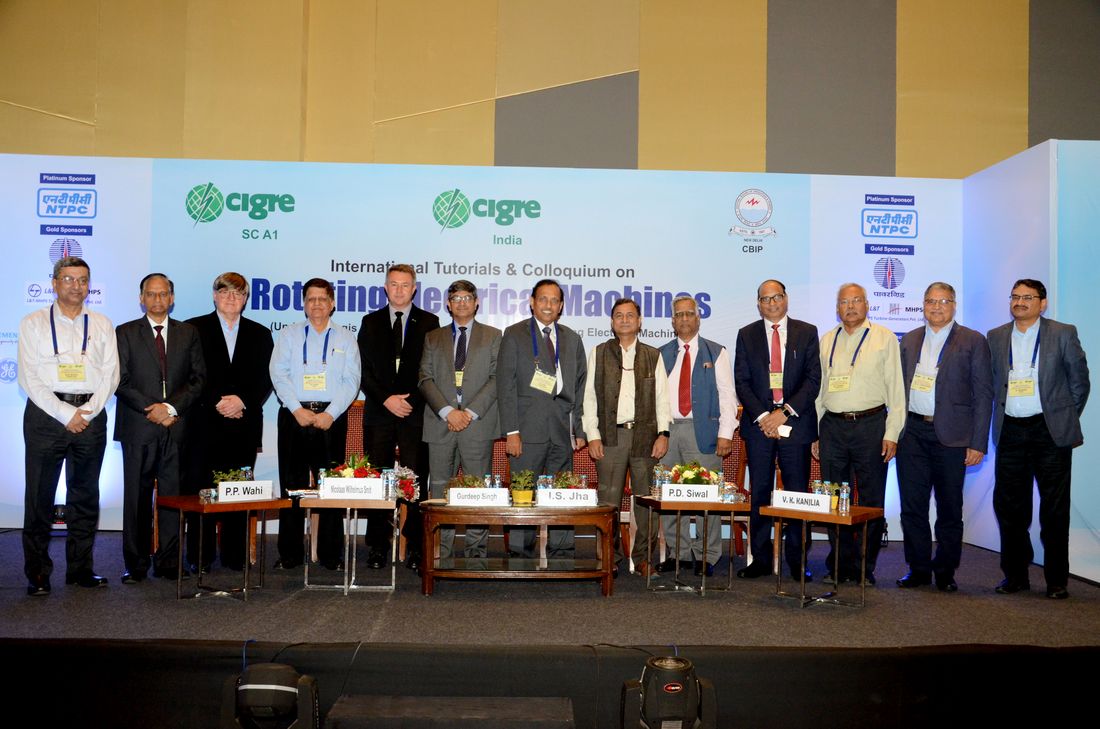
New Delhi, India
21-28 September 2019
SC A1 held its 2019 Study Committee meeting and Colloquium in New Delhi from 21 September 2019 to 28 September 2019 in Hotel Taj Vivanta, New Delhi. The events started off with a Working Group meeting of SC-A1/C4 JWG 66 ‘Guide on the Assessment, Specification and Design of Synchronous Condensers for Power Systems with High Levels of Renewable Generation’ which was held on the 21 September 2019. This meeting was attended by Members from the USA, UK, Germany, Australia, Hungary, France, Sweden, South Africa and India.
Mr. P.P. Wahi, Director CIGRE India, welcomed all delegates and emphasized the need of such interactive sessions. He stressed the need of conducting such Working Group meetings through Web conferencing, which will accelerate the progress of developing Technical Brochures. The meeting emphasised the use of Synchronous Condensers to enhance the Electrical System capability in respect of inertia, dynamic reactive power compensation, fault ride through and reactive power support, since new renewable based power plants are feeding active power to electrical networks through inverters and lacks support to grids on the above performance parameters.
Dadri power station visit
A full day site visit to Dadri Power Station was arranged for 22 September 2019. Members were shown a 500MW unit of a coal based power plant, combined cycle gas based power plant and integrated solar thermal hybrid plant, which utilise solar thermal energy to pre-heat feed water to enhance efficiency of the thermal power plant. Members were also taken to the power plant ash mound, where a thick forest has been developed over the old ash mount, with height of 30 metres. This is a unique system for dry ash collection and disposal with the ash mound formation set up for the first time in Asia, which has resulted in a progressive development making the lush forest possible and at the same time utilising less land and water as compared to the wet ash disposal system.
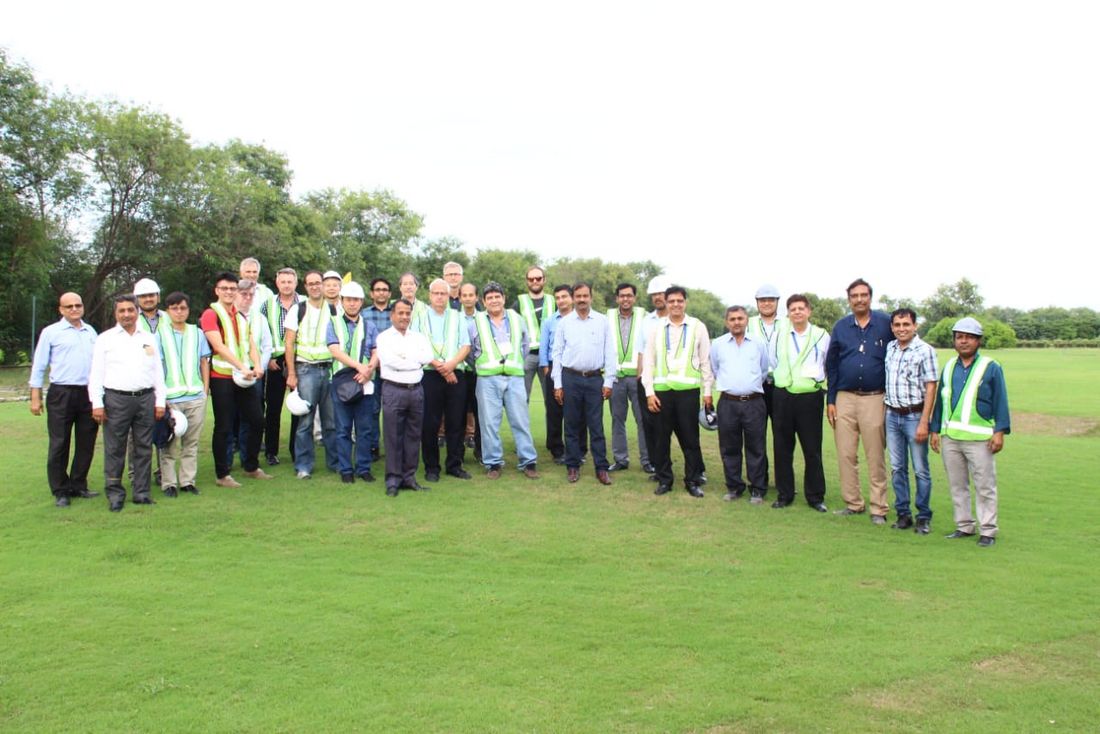
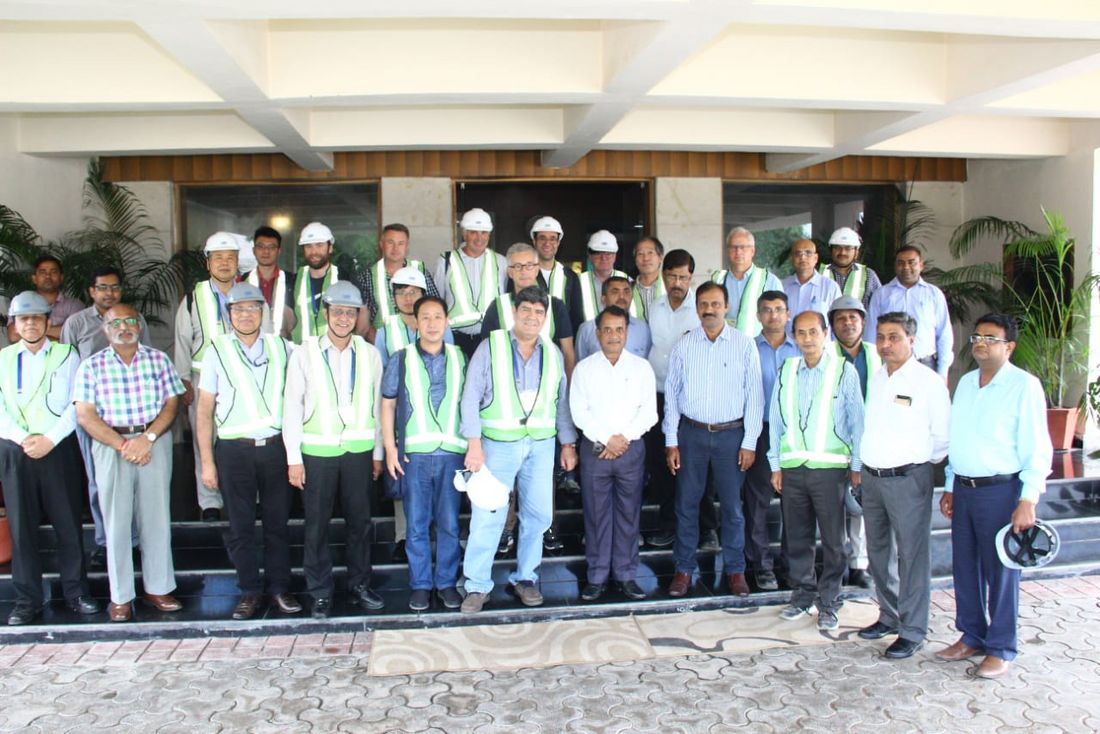
Working Group session
The Working Groups discussions were held at Debate Hall, Hotel Taj Vivanta, New Delhi on 23 September 2019. A total of 16 presentations were made on progress of each Working Group by Conveners. The task of following Working Group have been completed and Technical Brochure is published:
- WG.50 Factory quality assurance testing requirements for turbo-generator components - stator bars
- A1.31 State of the art of stator winding supports in slot area and winding overhang of hydro generators
- A1.37 Turbogenerator stator windings support system experience
- A1.39 Dielectric dissipation factor measurements on new stator bars and coils
- A1.34 Testing Voltage of Doubly - Fed Asynchronous Generator- Motor Rotor Winding for Pumped Storage System
The Six week review of following working group will commence after the India meetings:
- A1.33 Guide for Cleanliness and Storage of Generators A1.49 Magnetic Core Dimensioning Limits in Hydro Generators
- A1.42 Influence ff Key Requirements to Optimize the Value of Hydro Generators
- A1.54 Impact of Flexible Operation on Large Motors
- A1.53 Guide on Design Requirements of Motors for Variable Speed Drive Application
Advisory Group AG A1.01: Turbo-Generators
Convener of following Working Group gave presentation on the progress:
- A1.33 Guide for Cleanliness and Proper Storage of Generators and Components
- A1.48 Guidance on the Requirements for High Speed Balancing / Over-speed Testing of Turbine Generator Rotors Following Maintenance or Repair
A new Working Group proposal was presented by Monique Krieg on subject ‘Dielectric dissipation factor measurements on Stator Windings’.
Advisory Group AG A1.02: Hydro Generators
Convener of following Working Group gave presentation:
- A1.55 Survey on Split Core Stators
- A1.56 Survey on Lap and Wave Windings and Their Consequences on Maintenance and Performance
- A1.59 Survey on Industry Practices and Effects Associated with the Cutting Out of Stator Coils in Hydro-generators
- A1.60 Guide on Economic Evaluation for Refurbishment or Replacement Decisions on Hydro-generators
- A1.62 Thrust Bearing for Hydropower – A Survey of Known Problems and Root Causes
- A1.67 State of The Art Methods, Experience and Limits in End Winding Testing for Hydro-Generators
Advisory Group AG A1.05: New Technologies
JWG Convener gave presentation on progress of Joint Working Group SC A1/C4 JWG 66 ‘Guide on the Assessment, Specification and Design of Synchronous Condensers for Power Systems with High Levels of Renewable Generation’.
Advisory Group AG A1.06: Motors
Presentation on following Working Group was made:
- A1.53 Guide on Design Requirements of Motors for Variable Speed Drive Application
- A1.54 Impact of Flexible Operation on Large Motors
- A1.58 Selection of Copper Versus Aluminium Rotors for Induction Motors
- A1.61 Survey of Partial Discharge Monitoring in Large Motors
- A1.64 Guide for Evaluating the Repair/Replacement of Operable Standard Efficiency Motors
- A1.68 Evaluating Quality Performance of Electric Motor Manufacturing and Repair Facilities.
Study Committee meeting
The Study Committee meeting was held on 24 September 2019 in hall Tango-2 of Taj Vivanta, New Delhi. Chairman SC A1 appraise members on the rules and regulations to be followed in CIGRE contributions. The final draft of Minutes of the last Meeting that took place in Paris 2018 was accepted by the Committee.
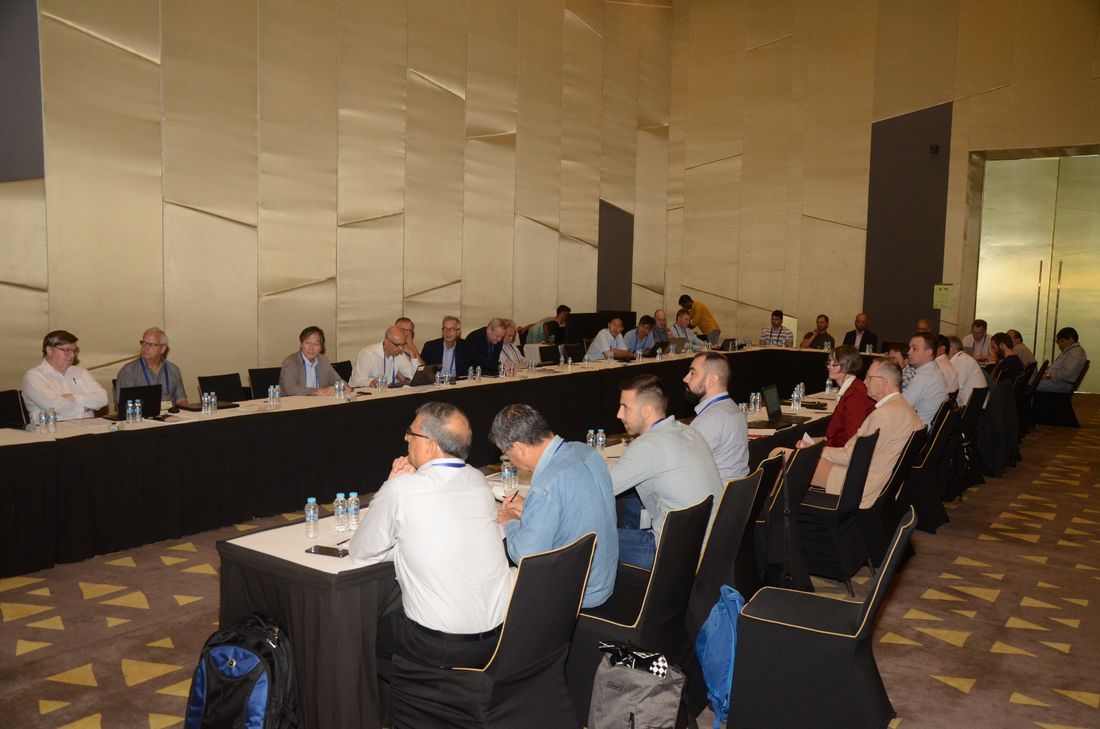
Study Committee SC A1 meeting in progress
Tutorials session
The SC A1 Tutorial Session was held on the 25 September 2019 in hall Tango 1&2 of Taj Vivanta, New Delhi. There were in total four tutorials presented. Tutorial sessions were attended by well over 170 delegates.
SC A1 Tutorial Session at New Delhi 25 September 2019
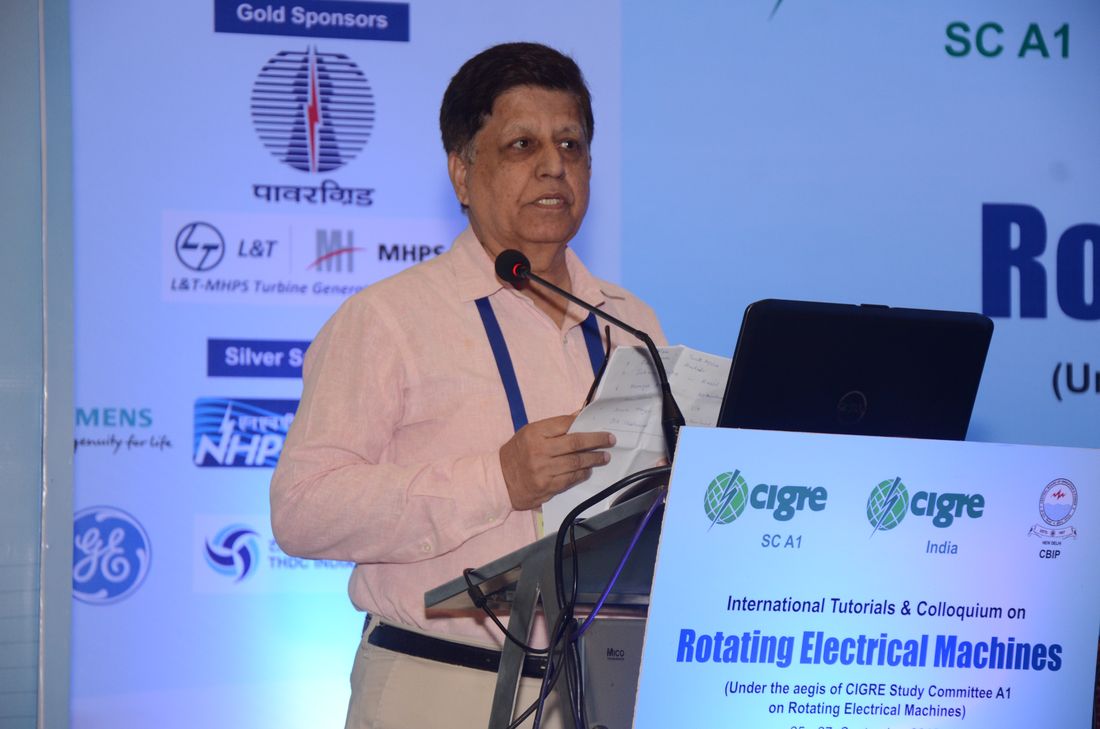
SC A1 Tutorial Session at New Delhi 25 September 2019
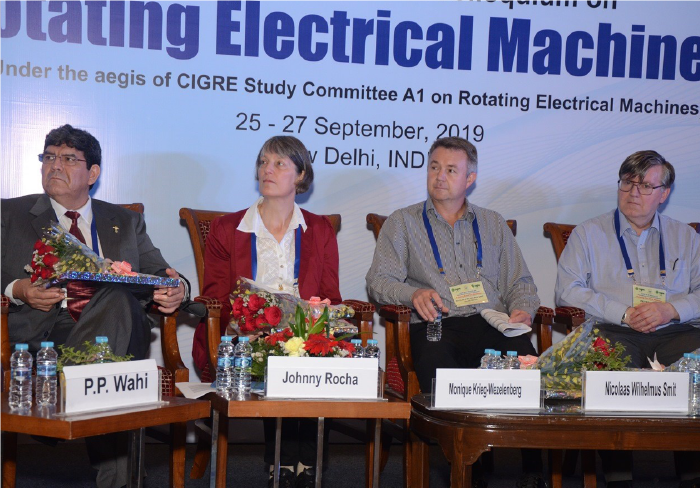
SC A1 Tutorial Session at New Delhi 25 September 2019
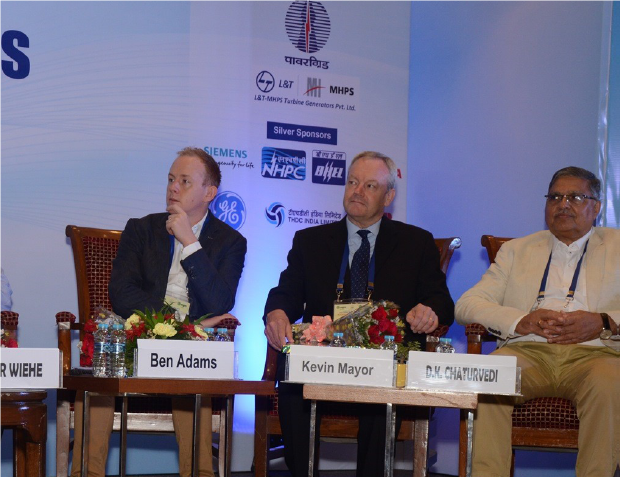
SC A1 Tutorial Session at New Delhi 25 September 2019
Tutorial 1: Magnetic core dimensioning limits in hydro-generators
- Johnny Rocha, Brazil
The tutorial touched on the fundamentals of magnetic saturation in salient pole machines. The tutorial dealt with the effect that pole shape, speed of machine, stator winding factor etc. has on the air gap magnetic flux density. Similar analysis was also done for saturation of stator core, pole and rotor rim.
Tutorial 2: Application of dielectric dissipation factor measurements on new stator coils and bars
- Monique Krieg-Wezelenberg, Netherlands
In the field of rotating electrical machines, the Dielectric Dissipation Factor (DDF) measurement is used for assessing the manufacturing quality of individual stator bars/coils and the dielectric behaviour of the electrical insulation system of a winding. To provide a better understanding of the use of DDF measurements in relation to the assessment of the condition and quality of stator insulation systems, 20129 DDF measurements on newly manufactured stator bars or coils concerning four different types of electrical insulation systems were collected and analysed.
Tutorial 3: Guidance on the requirements for high speed balancing/over speed testing of turbine generator rotors following maintenance or repair
- Ben Adams, United Kingdom
The tutorial pertains to turbo-generator balancing requirement after repairs. The issue of balancing a turbo-generator rotor (2 pole and 4 pole rotors) after repair/ rewind was discussed in the Working Group. The results have been deliberated in the Tutorial. Challenges affecting the decision to balance or not is due to the geographic distance between the balancing facility and the work site and cost overruns in transport and logistics have been indicated by the speaker. It is fairly agreed that if new copper is not used during rewind/ repair, high speed balancing is not a recommendation.
Tutorial 4: Guide for cleanliness and proper storage of generators and components
- Kevin Mayor, Switzerland
The tutorial defines methodologies for storage of critical components of generators in an attempt to guide utilities who are not sure on the adequacy of their present storage procedures. It emerged from studies that foreign particles including dust can clog rotor and stator cooling ducts and may cause electric shorts resulting from overheating. Specific discussions were focussing on storage of complete stators, complete rotors, stator bars, rotor bars and insulating materials. Clean conditions, access control, proper usage of desiccant, dehumidifiers, etc. are to be given due care. The Working Group has systematically organised the details making it a ready to use guide for utilities.
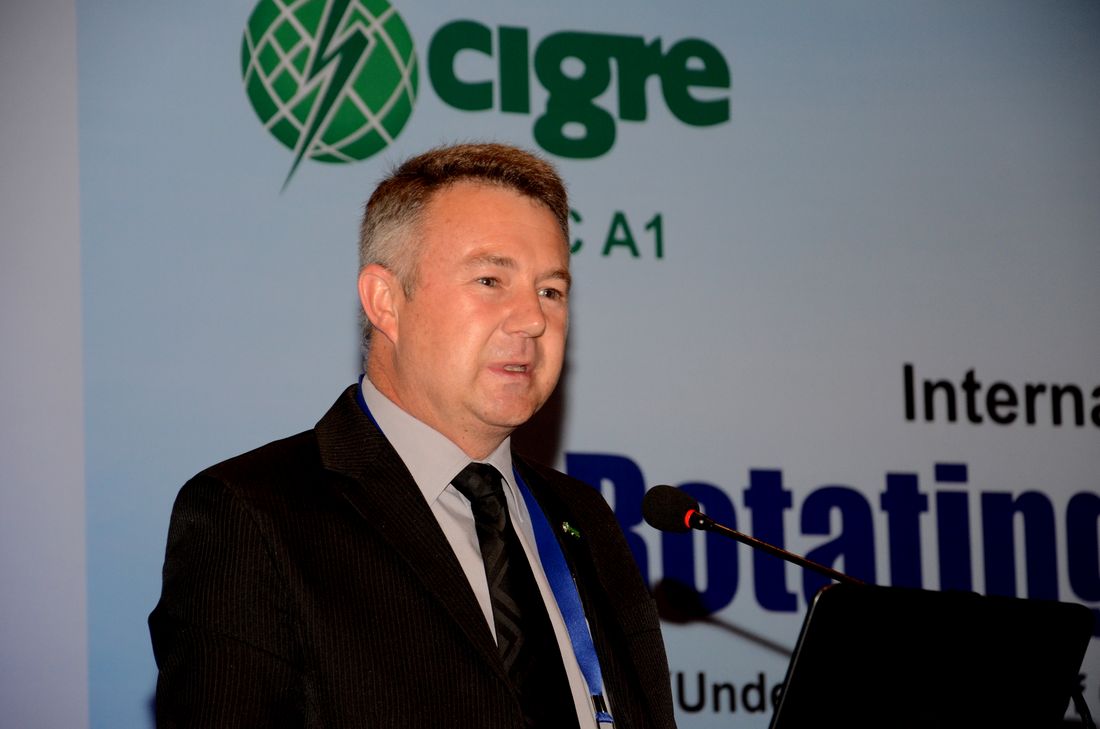
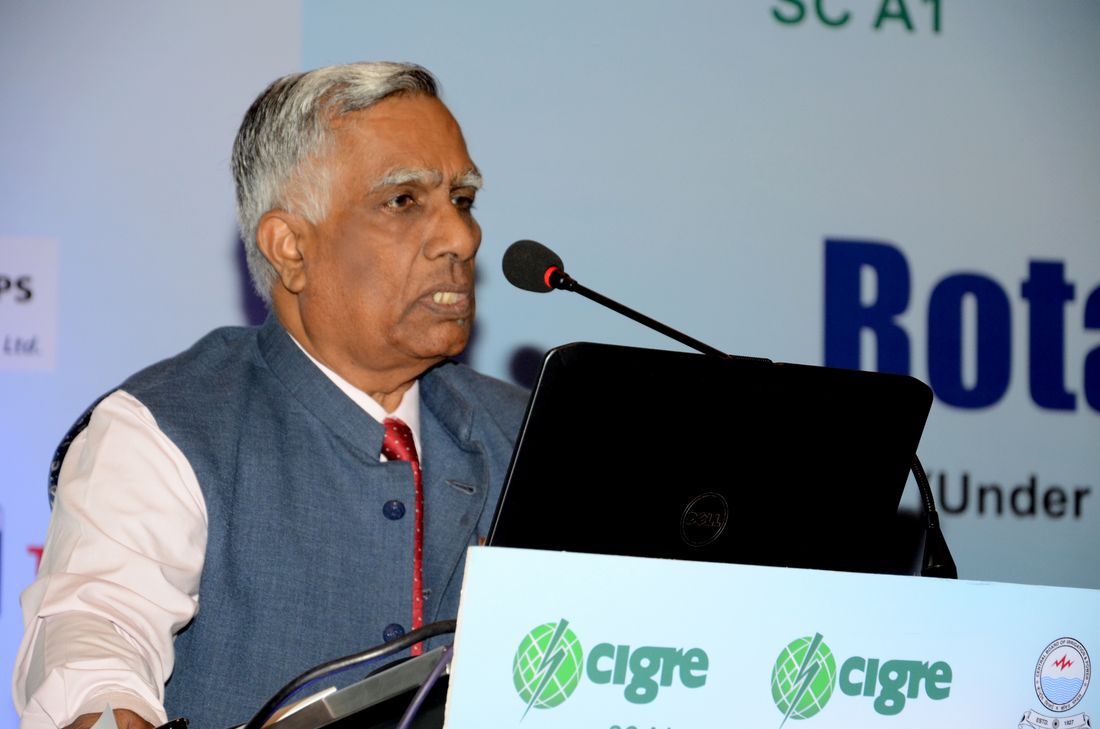
SC A1 Colloquium Chairman Mr. Nico Smit & Secretary CBIP Mr. V.K. Kanjalia
Colloquium
The SC A1 2019 Colloquium took place on the 26 & 27 September 2019 in hall Tango 1&2 of Taj Vivanta, New Delhi. There was a total of 24 papers presented. Colloquium sessions were attended by 185 delegates. The program began with lighting up the lamp ceremony. During the inaugural session, the President of CIGRE India stressed the need of using high efficiency machines to reduce electricity consumption and elaborated on the role of large turbo-generators as Synchronous Condensers for enhancing electrical network reliability and efficiency – a step towards ‘Greening the Grid’.
The first technical session began with a lead paper ‘Electrical Machines Trends in Renewable Mix Scenario, Green House Gas Emission Reduction and High Reliability’ presented by Mr. A. K. Gupta, Vice President CIGRE India. The paper emphasized the need to contribute more towards a cleaner environment through improved efficiency and reliability of electrical machines.
He appraised but also warned delegates on phasing out inefficient thermal plants and introducing large-scale renewable generation in the grid forcing fossil fuel-based power plant operation on cyclic duty. He emphasized the requirement to develop new designs and solutions to handle the thermal stresses introduced to rotating machines due to cyclic operation and loading.
It was also suggested to explore the possibility of using retired machines as synchronous condensers, which might find a wide application due to large renewable penetration in the grid. These synchronous condensers will help in grid stability during sudden load changes. Important grid stability requirements such as maintaining grid inertia, short circuit withstand capability and dynamic voltage withstand capability can be well met through the use of synchronous condensers.
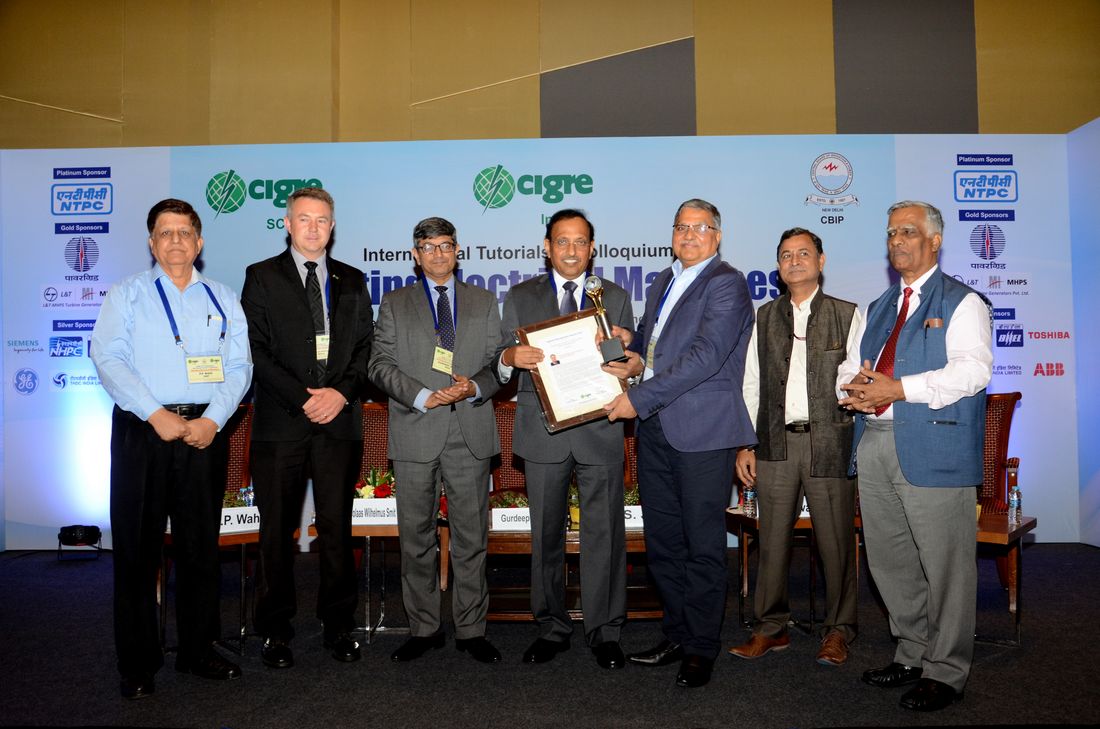
A Recognition from CIGRE India for exceptional contribution in CIGRE activities of SC A1
In view of foreseen high renewal energy penetration, the preferential subjects for SC A1 2019 Colloquium were finalized as follows:
Preferential Subject 1: High Renewable Penetrated Networks
- Methods and experiences for the evaluation of existing base load plant to handle new grid requirements such as cyclic loads, high values in the rate of change of frequency (Hz/s), fault ride through capability, extended U/f requirements, higher power factor requirements.
- Usage of new as well as decommissioned power plant generators as synchronous condensers to solve power quality issues due to large scale renewable integration & comparison with other FACTs devices.
- Design improvements, technological advancement and operational experience of Hydro generators for prolonged and efficient operation as low and very low speed generators, synchronous condensers and pump-motors.
- Innovative trends in the field of Turbo generators, Hydro generators, wind turbine generators, large motors and high efficiency motors.
- Suitability of generators and motors in a renewable energy mix environment from a harmonics point of view.
- Latest designs implemented or proposed for Rotating Electrical Machines to endure severe load cycling.
- Wind Turbine generator experience: Failures, design challenges, maintenance philosophies and maintenance challenges.
- Concentrated solar power, solid waste and Biomass power plants: Design, specification, construction, efficiency, operation and maintenance experience.
Preferential Subject 2: Operational Experience and New Developments
- Operational experience on state-of-the-art technologies used for large turbo generators, hydro generators, wind turbine generators, high voltage motors and high efficiency motors.
- Latest designs and maintenance practices to improve efficiency, reliability, availability, robotic inspections, and reduce maintenance costs.
- Performance and reliability comparison of different designs of large motors of same ratings and duty cycles with regards to heating, efficiency, mean time to failure, life cycle costs.
- Advanced and optimised condition monitoring and analysis making use of latest technologies, taking digitization, big data, advanced analytics, etc. into consideration.
- Experience with renovation, modernization and up-rating of aged power plants.
- Novel techniques to overcome known operational and design problems of hydro power plants especially for operation in silt prone water.
There were 24 papers presented covering large turbo generators, machine insulation system, hydro generators and motors. These papers were presented in six sessions on 26 and 27 September 2019.
Technical visit
A technical visit was arranged on the 28 September 2019 to the +800kV Multi terminal HVDC station near Agra. Delegates were given a detailed presentation on the +800kV, 6000 MW HVDC Bi-pole transmission system between Biswanath Chariyali (Assam) to Agra (Uttar Pradesh).

Delegates at 800kV HVDC Terminal Agra
Cultural evening
A cultural evening was organized on 26 September 2019 evening at Hotel Taj Vivanta New Delhi.
